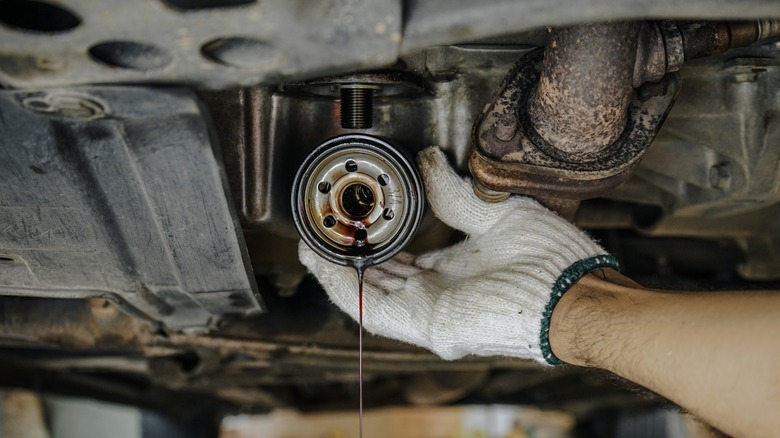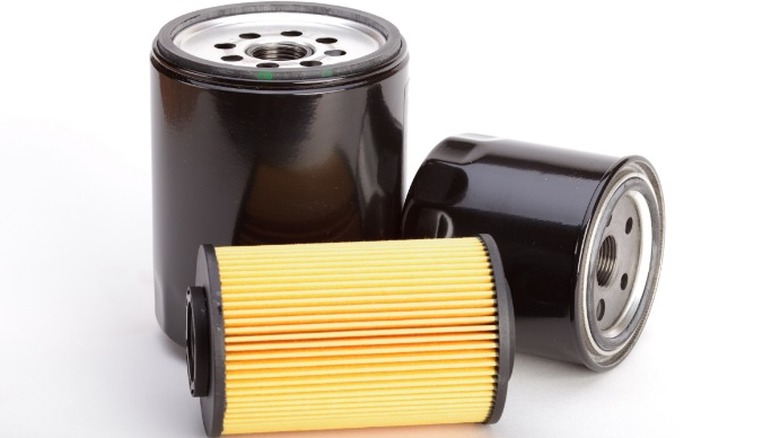No, Oil Filters Aren't Universal - Here's How To Know What Kind You Need
The internal combustion engines that power most of our vehicles depend on a steady supply of engine oil for lubrication and friction reduction. This fluid comes in various different viscosities or thicknesses and is engineered specifically for the harsh conditions inside of a car's engine. Oil isn't the only component that makes up your vehicle's engine lubrication system, though. In addition to the oil sump or pan, various lines and oil passages, your car also relies on an engine oil filter to help keep the oil clean and free from debris.
Before the oil reaches the engine, it must pass through the filter. The filtration material prevents things like dust, debris, and metal shavings from getting into the engine and causing damage, like wear, clogs, and drops in the vehicle's overall performance. Engine oil filters contain a seal and a filtration mechanism, which, depending on the type of filter and the car, can be made from material like paper or synthetic fiber. You can typically find the oil filter below the engine, near the oil pan. However, depending on the vehicle, the filter's location can differ, and some cars have their oil filters in the engine bay. All vehicles with internal combustion engines rely on oil filters, and it's important that you replace the filter each time you change the oil. However, it's important to note that oil filters are not universal.
It's critical that you buy the oil filter that your car's manufacturer recommends. Not only is it highly unlikely that you'll even be able to install an incorrect filter on your vehicle, but you could also cause severe damage to the engine. Fortunately, it's pretty easy to pick out the proper oil filter for your car.
How to find the correct oil filter for your car
The quickest and easiest way to determine what oil filter to buy for your car is to read your vehicle owner's manual. This manual contains vital information about your vehicle and the maintenance you need to perform to keep it healthy. It's the best and most efficient way to find information about your oil filter and various other vehicle fluids and services.
If you don't have an owner's manual, there are still several ways you can find out what oil filter to buy. Repair manuals, in comparison to owner's manuals, do not come with most cars. You can buy these books from auto parts stores or online, and they contain information about various repairs and maintenance services. These guides are vehicle specific, and they can be a great investment for home mechanics and DIYers. Besides using a repair manual, you can visit your local auto parts store and ask an employee to look your car up in their system. These stores have databases with information about virtually every vehicle you can imagine, and they can be great places to confirm a part's fitment before a DIY job.
Finally, you can also look the information up online yourself — just be careful to confirm that what you find is correct — or reach out to your local dealership or mechanic to ask about your car's oil filter. All that said, this information is really only important if you plan to perform your own oil change. If you visit a mechanic or lube shop for oil changes, the technicians will replace your oil filter properly without requiring you to do anything.

